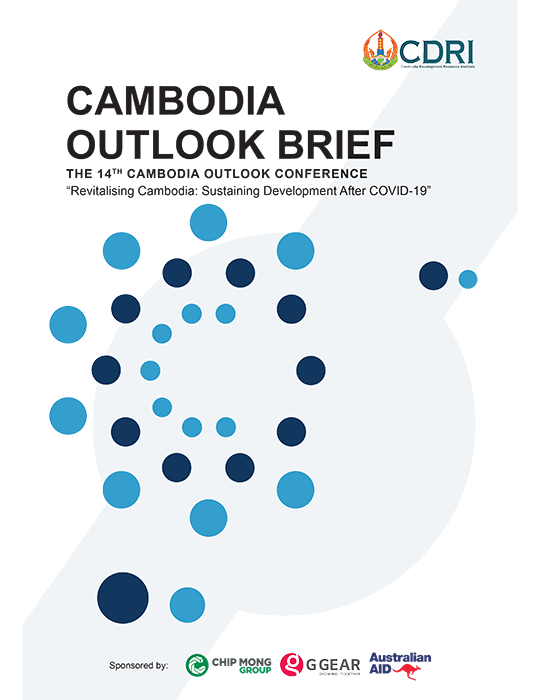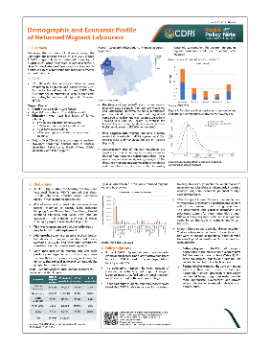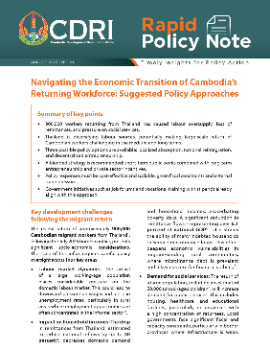
Revitalising Cambodia: Sustaining Development After COVID-19
Khmer PDF (74)
Abstract/Summary
The 14th Outlook Conference held on 6 October 2022 brought together leaders in government, business, development, and academics to discuss these important issues. The conference focused on exploring possible ways forward for Cambodia to achieve inclusive and sustainable development in the context of post-COVID-19 recovery in order to achieve upper-middle income country status by 2030. This policy brief outlines the policy considerations which emerged from the conference, beginning with risks and opportunities facing Cambodia, changes that should be made to Cambodia’s pre-COVID economic strategy, and the urgent actions that public private partnerships should undertake to achieve economic development.
Prior to the COVID-19 pandemic, Cambodia’s economic development strategy was exemplary. Beginning in 2010 through 2019, the Cambodian economy grew 7% annually making it one of the fastest growing countries in the world and enabling it to achieve lower middle income country status in 2015. However, by 2020, Cambodia experienced its first recession in 30 years placing increased burden on Cambodia’s most vulnerable populations.
COVID-19 and other global pressures, such as environmental degradation, geopolitical instability, and economic nationalism, continue to impact the nation’s development. As a result, Cambodia needs a new direction for growth which will thrive through the new challenges of a continuously changing world.
On the economic front, Cambodia’s growth model needs greater diversification and industrial upgrading, particularly focusing on digital opportunities. Cambodia’s gross domestic product growth in 2020 and 2021 was smaller in comparison to other countries in the region with more diversified export bases. Cambodia also faces geopolitical risks stemming from the war in Ukraine and maintaining a balanced position in the emerging new world order.
On the environmental front, climate change, deforestation, and agricultural water resource governance in the Mekong River threaten the agriculture-dominated rural population. Environmental changes brought about by climate change and governance of water resources is a key issue considering the agricultural sector’s importance for livelihood resilience in Cambodia.
Finally, any future development strategy will need to broaden its horizons to consider a range of multi-dimensional poverty and social indicators. Livelihoods are determined not just by income, but also by food security, access to basic infrastructure, opportunities for education, and a sense of empowerment.



